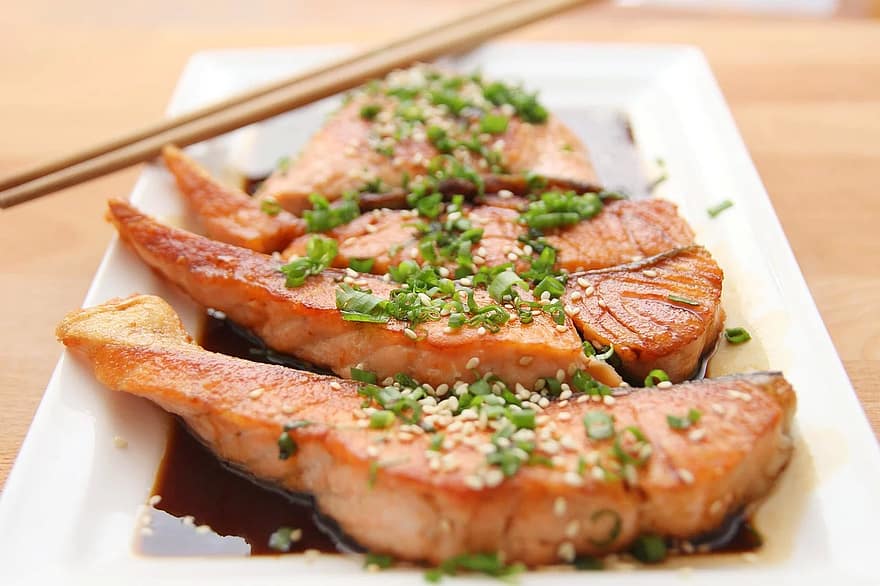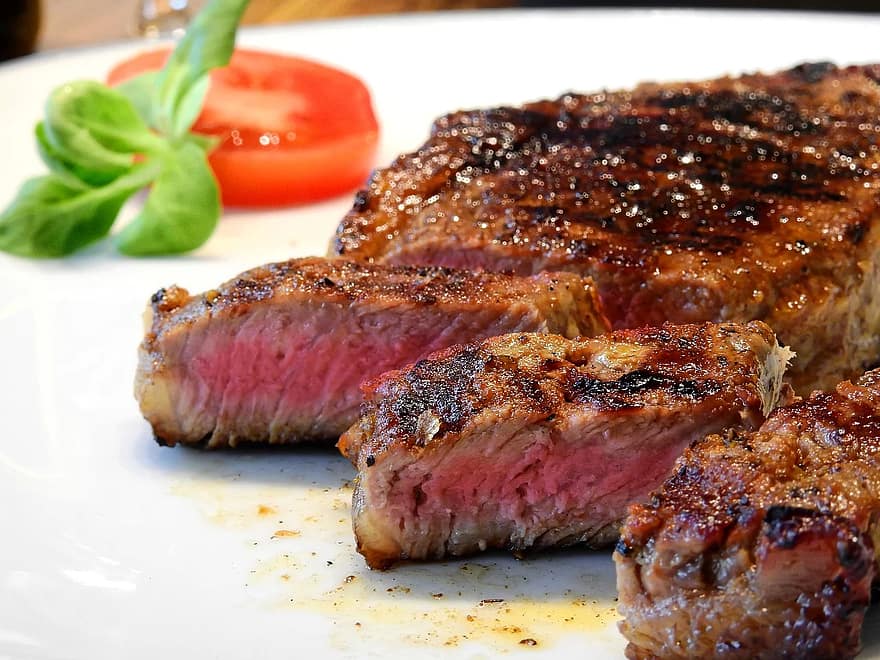Protein is a very important macronutrient that is a staple part of a bodybuilder’s diet. It doesn’t take much to see how important protein is to weight lifters and bodybuilders, as there are so many different supplement companies out there that have come out with their own line of protein supplements. So, we as weight lifters, recognize that if there is one thing we don’t reduce whether it be on a bulk or a cut, is the protein intake. Majority of the time, the macronutrient break down, always has the protein at a relatively high number, because it has been taught to us constantly, that protein is very important in building muscle mass. The question that arises from this statement, to most people who actually are curious on why certain things are the way they are and don’t just accept the information without doing their own research, is “is this true?” And the answer to that question, in essence, is yes. Protein is very important in one’s diet, not just for bodybuilders but for the average joe. It becomes even more important for bodybuilders because of its ability to help with the repair of muscle tissue.

So, I am going to break this blog down into different parts, to try and make it easier to understand as I absolutely believe that understanding why something is done, helps one to implement it even more into their regimen. Also the reason I wanted to speak on why all proteins aren’t alike, is because a lot of propaganda is spreading on how protein can be consumed by just eating vegetables and that’s it. That a meat diet isn’t necessary to build muscle mass. Now, although this is true in the wider perspective in regards to this issue, it is a very dangerous statement because it doesn’t provide anything more than just that; being a statement. I have yet to see any of these memes that I see spread all over my facebook page, speak on how the vegetable diet will assist in building muscle mass and they all fail to provide some essential information; NOT ALL PROTEINS ARE ALIKE. I am not saying that one cannot consume an all vegetable diet but there is a reason why those supplement companies do so well. Without them, I don’t know what these vegetarians would be doing with themselves.
Anyways, so lets get right to it. The first question to target is:
What is protein?
Protein is a macronutrient that is made up of one or more long chains of what is called amino acids. If you recall from your high school biology class, that term, “amino acids”, should ring a bell. I remember it constantly being mentioned as the “building blocks” of protein. Protein also takes part in various functions in the body. For example proteins are involved in structural support, fighting off foreign bodies as antibodies, they are messengers that help regulate certain bodily activities that have to do with hormones, some store amino acids, others transport molecules from one area of the body to another. The list can definitely go on, but this shows how important they are in the overall function of the human body. One of the most important function of proteins in the human body for bodybuilders, is the proteins that are involved in movement and contraction. Actin and myosin are proteins that are important in muscle contraction and structural support. Keep this in mind, because we will refer to it later on in this article, in reference to how muscles are built.
Our body has the ability to synthesize certain amino acids, but unfortunately cannot synthesize all the amino acids that we need. Instead, we consume these amino acids, which are referred to as essential amino acids. They are called essential because yet again, our body doesn’t make it, so we have to consume food where the protein in our food will be broken down through our digestive system by being introduced to acid and through hydrolysis (another break down method), into individual amino acids. This process is called denaturation and once the protein has been broken down into different amino acids, they are utilized for different functions in the body.
Now, this is where it becomes interesting because yet again, not all proteins are alike. I say this because, meat generally provides us with all of the amino acids that we need, but someone who only consumes fruits, vegetables and nuts, are limiting themselves from acquiring all of the amino acids they need because these types of food are lacking in one or more essential amino acid.
So now that we know what protein is, what it is made up of and how we acquire these building blocks into our system to allow for protein synthesis to occur, we need to talk about how muscle is grown. I mean, that’s the most important part of this article, despite it being titled “Why all proteins aren’t alike”.
As we now know that not all proteins are alike, because if they were, we could consume a diet only of fruits and vegetables and not worry that these foods are actually missing some essential amino acids, we can talk about how muscles are built and how these proteins we consume, are important in acquiring muscle mass.
How is muscle built?
We have a fair idea, even as beginners, that muscle is built by lifting weights on a continuous basis so that we can “tear” the muscle fibers. Muscle is grown by repairing the damaged muscle fibers, which will increase the cross-sectional area of the muscle fiber, which in essence is hypertrophy (increasing in size). This increase in the cross-sectional area of the muscle fiber, starts by the activation of satellite cells that are located on the outside of the muscle fiber and are sent over to the area of damage. These specific cells fuse to each other and to the muscle fiber in an effort to repair or rebuild the damaged muscle. Throughout this lengthy process, the satellite cell provides, in their own way, supplementation for more muscle fiber to grow and in turn those muscle fibers can synthesize more actin and myosin (remember those are the contractile and structural proteins), which is a very good thing.
As complicated as the above explanation is, it is quite simple. Food is consumed to provide the body with the amino acids that it needs to build certain components of our body, one of those things is our muscles. The myosin and actin, that are formed from different amino acids, are synthesized when one consumes food and the protein is broken down into their individual amino acids. As one trains in the gym, the damaging of those muscle tissues activates certain cells that are used to help with repairing or replacing those damaged muscle tissue. By synthesizing more contractile proteins, inevitably the size of the muscle will increase.
To acquire those amino acids, as aforementioned, certain foods need to be consumed. If one restricts their diet to only vegetarian meals, it becomes harder to acquire all of those amino acids, as yet again, some of them will lack one or more of the essential amino acids. If someone chooses a vegetarian lifestyle, they will have to consume a WIDE variety of fruits, vegetables and nuts, to make sure they are getting in all the amino acids that the body needs to carry out its’ different functions.
From a bodybuilders stand point, just consuming vegetables, fruits and nuts on a regular basis isn’t logical because as we will see in a second, it requires more of those foods to even reach a significant percentage of required protein consumption for the day, of someone who is into fitness training and is interested in gaining muscle mass.
To give you an idea of how difficult this is, for someone who doesn’t eat meat at all (I am including those who don’t even eat fish, for this example), a 6 oz salmon has about 34 grams of protein! Now if one were to be acquiring their nutritional intake from anything other than meat, let’s say some cooked lentils, 1 cup of cooked lentils has about 18 grams of protein! We can see from that example, how from a number stand point (lets just forget the essential amino acids we want to acquire from our foods), consuming meat as our main source of protein, is a much wiser option. I mean, to just meet the 34 grams of protein that is in the salmon, an individual will have to consume 2 cups of cooked lentils just to hit 36 grams! I am not sure how much non professional bodybuilders can honestly say they can do this, in one sitting!
Just as a way to wrap up this lengthy blog entry. I want to just focus on a counter argument to what I have been talking about. This would be that protein supplements (as I mentioned earlier in this article), can be used to replace meats in a vegetarian diet to help with protein synthesis and the process of muscle growth. While this is true, an individual who’s main source of protein is just meat can eliminate the protein supplement and still reach their macronutrient percentage for protein, without breaking a sweat. In fact, the protein supplement will just get them to a very higher protein intake if their diet requires it. The amount of protein shakes the non meat eating person will have to chug, instead of eating some solid foods, will be too significant for them to realistically stick to it, unless they of course yet again are professional bodybuilders.
So in summary, not all proteins are alike. The amino acids you will acquire from certain foods, are different and some will lack the amino acids you need. The amino acids you will acquire from fruits, vegetable and nuts, are not going to make up all of the amino acids (20, to be exact), that you require to consume for your body to function properly. This is why a balanced diet of meats, vegetables, fruits, nuts, grains, legumes and oils, etc., is recommended. Now, I am not saying that it isn’t possible to consume an all vegetarian diet and not get ripped, but do not expect to pack on significant muscle mass unless you are throwing back some serious protein shakes every day. I might love my protein shake, but if you are experienced in weight lifting and nutrition in regards to building muscle, you will come to realize that it is so much better to get your protein from your foods than to chug a protein shake that will keep you feeling bloated for hours.
